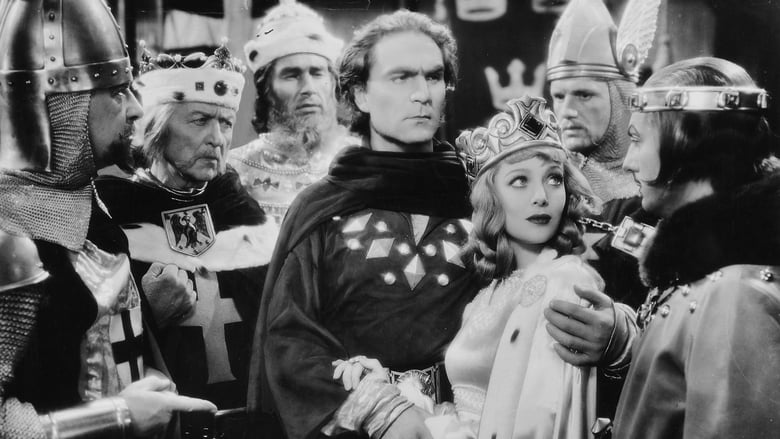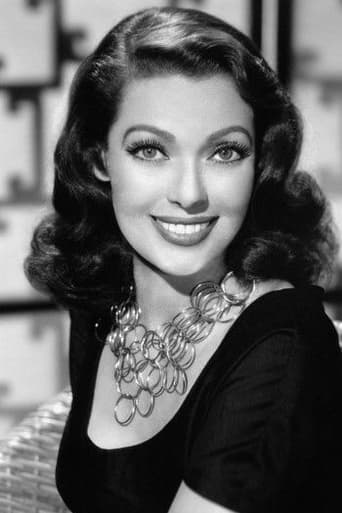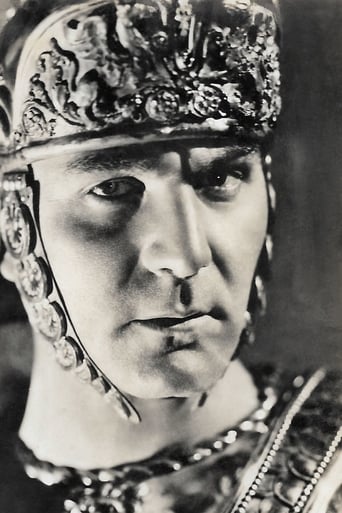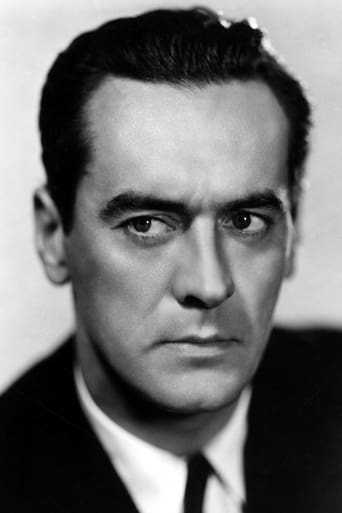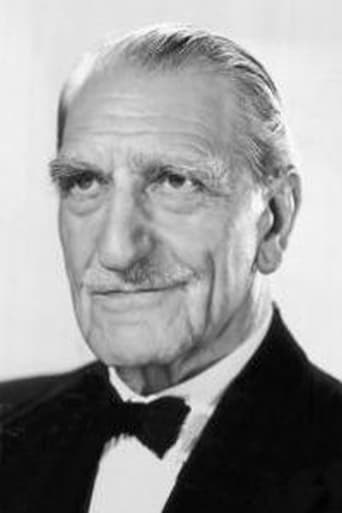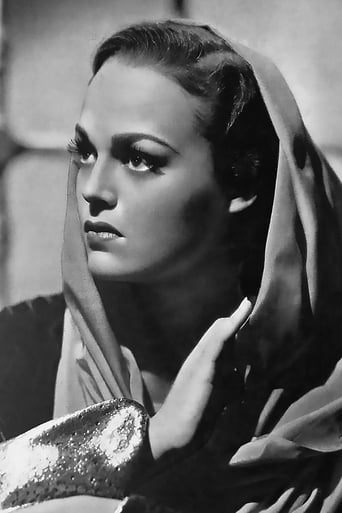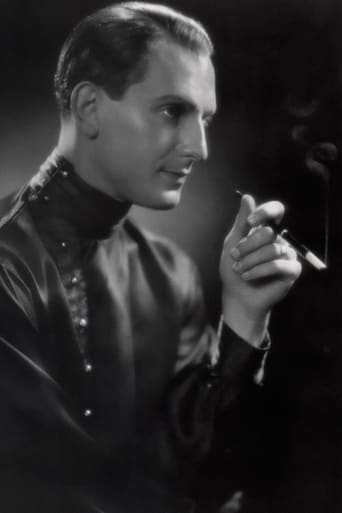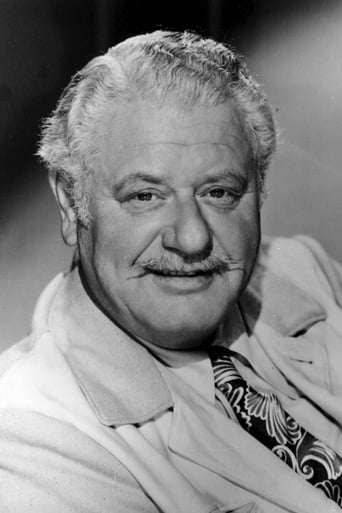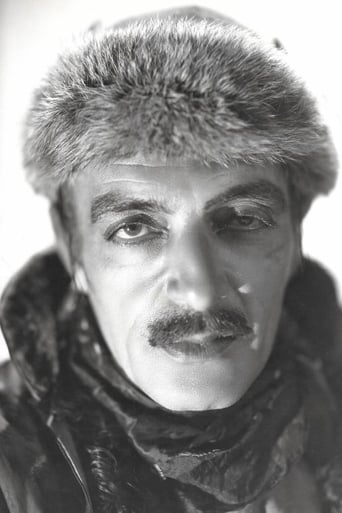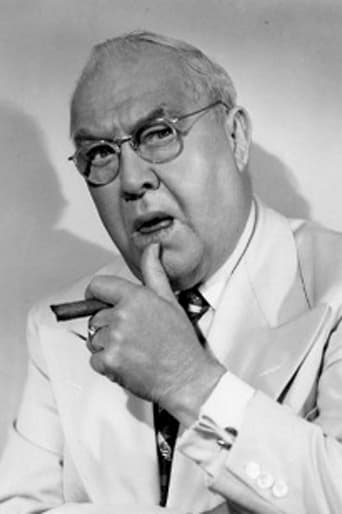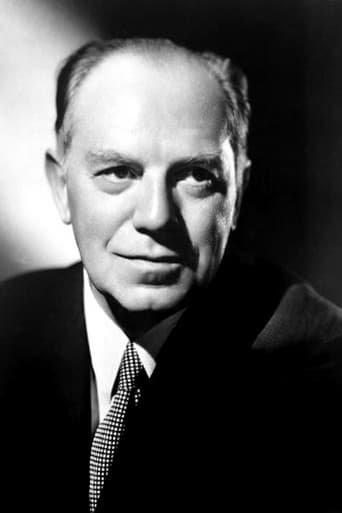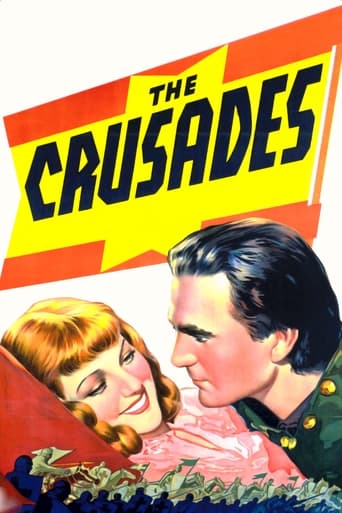
The Crusades
August. 21,1935King Richard the Lionhearted launches a crusade to preserve Christianity in Jerusalem.
Similar titles


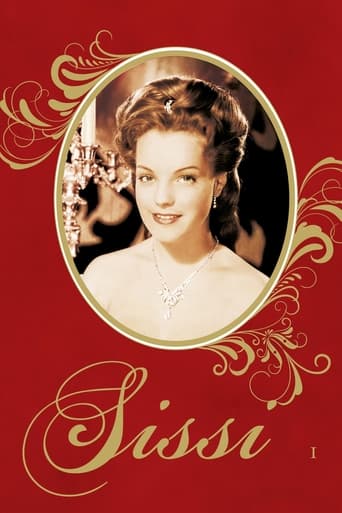
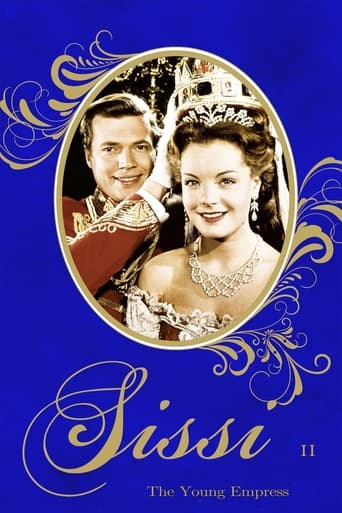
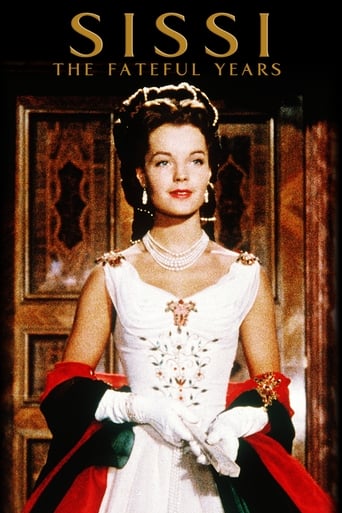

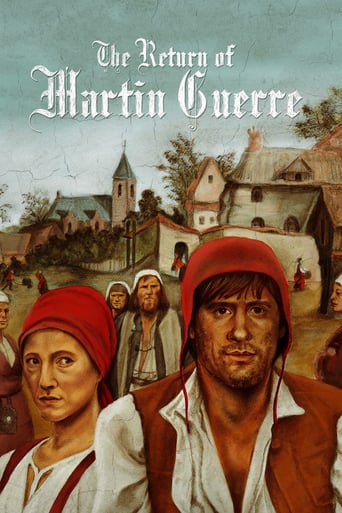
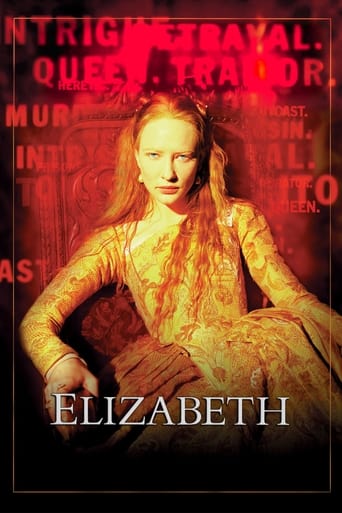
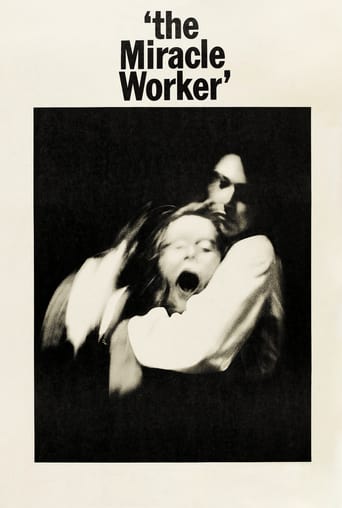
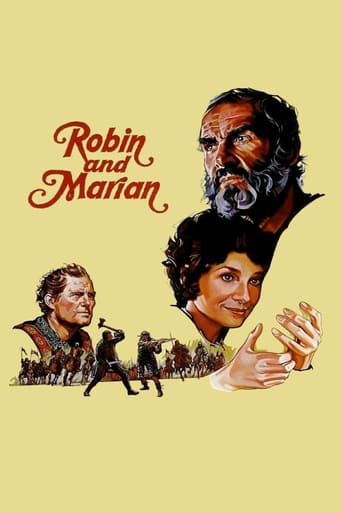
Reviews
Good start, but then it gets ruined
All of these films share one commonality, that being a kind of emotional center that humanizes a cast of monsters.
The film may be flawed, but its message is not.
It's easily one of the freshest, sharpest and most enjoyable films of this year.
The production values of this picture are excellent. You can tell from the sets and costumes a lot of money was spent. The great weakness of this film is the script and acting technique. The script is straight 19th century maudlin melodrama. Unfortunately, the acting technique is the same. Lines are delivered in a stilted, formal manner common to the stage of an earlier era instead of the more natural technique we are accustomed to seeing in film today. The 30's was indeed a transition period in acting technique: the over wrought melodramatic technique of the silent pictures and stage in the early thirties to the natural technique finally adopted in the late 30's. Of course, the plot itself is implausibly melodramatic "love conquers all" for "world peace" kind of thing. Still, for a film student its still worth watching for the fine directing.
To begin with, being a fan of the epic genre, I had always wanted to check this one out and, in fact, was very pleased when Universal released it as part of their 5-Disc Cecil B. De Mille collection; however, since I already owned both THE SIGN OF THE CROSS (1932) and CLEOPATRA (1934) via TCM showings, I kept postponing the purchase of this set until I acquired the lot through a friend of my father's! Having been duly impressed with those two De Mille spectaculars, I had intended to watch this immediately (I got the film around the middle of last year) but for various reasons I even had to exclude it from my Christmas viewing I could only get to it now that Easter is approaching! Incidentally, the 5th of March happened to mark the centenary from the birth of actor Rex Harrison, who had starred as Saladin (the villainous 'infidel' of THE CRUSADES) in KING RICHARD AND THE CRUSADERS (1954), which I recorded off Italian TV (even if I had already watched it and in spite of its poor reputation) expressly for the purpose of accompanying my viewing of De Mille's film! Anyway, THE CRUSADES is another notable achievement (from the days prior to the epic heyday of the 1950s and 1960s) which goes to prove yet again that De Mille was perhaps cinema's greatest purveyor of hokum disguised as inspirational art for the masses (even if this particular example, reportedly, flopped at the box-office).The central relationship between gorgeous Loretta Young (such strong female presences abound in the director's work) and De Mille regular Henry Wilcoxon (an unusually handsome, and Godless, Richard the Lionheart amusingly referred to by Saladin as "The Lion King"!) goes through some interesting, yet oddly believable, tangents during the course of the film. Starting off in antagonistic vein more typical of then-current screwball comedies (he even prefers carousing with his men to their wedding ceremony, where his place is eventually taken by the royal sword!), it develops into one that borders on amour fou which could jeopardize the outcome of the whole crusade (it's actually comparable to the bond-to-the-death between Roman centurion Fredric March and Christian slave Elissa Landi in the earlier THE SIGN OF THE CROSS)! The excellent supporting cast includes, among others, Ian Keith (as Saladin), Joseph Schildkarut (typically sneaky as one of the Christian rulers), C. Henry Gordon (as the French King, whose sister Katharine De Mille the director's adopted daughter Richard has deliberately spurned), Alan Hale (as Richard's minstrel/sidekick, a Little John type that would soon become his trademark), C. Aubrey Smith (as the old hermit who is challenged by the overly confident Saladin at the beginning of the picture to rally the Christian countries in a crusade against his forces and, later, made hostage and chained to a cross to bar passage to the advancing army, he asks Richard to proceed with the attack regardless!) and Mischa Auer (in an early role as a monk).While the script obviously eschews the Robin Hood legend that has become associated with Richard and the Crusades (the Douglas Fairbanks version of 1922 about that popular outlaw figure, in fact, spends more time with him as a knight than the proverbial 'Merrie Man'!), subtlety is still the last thing one would hope to find in a De Mille pageant. In fact, Young's abduction by the Muslims (with her dressed as a sentry in a suicidal bid to end the discord between the various royals!) is pretty contrived; similarly, the fact that Young is contended in the terms laid down by Saladin for the truce with the Christian world is pure Hollywood. With this in mind, the dialogue (co-written by Dudley Nichols) is consciously stilted throughout albeit featuring such good lines as Saladin's defiant claim to the monarchs gathered in their tent, "There is room enough in Asia to bury all of you!" Made after the dreaded (and stifling) Hays Code came into force, it's not as bloodthirsty as the afore-mentioned THE SIGN OF THE CROSS even so, the battle scenes are quite realistic (with the clanging of heavy steel being heard as the opposing armies clash in a confusion of warriors and horses) and may well have influenced Sergei Eisenstein's Alexander NEVSKY (1938). There is one evident display of viciousness here on an isolated member of Schildkraut's treacherous army as a clutch of Muslim riders (appearing on the scene to rescue the cornered Wilcoxon at the instigation of Saladin himself, in the hope of thus winning Young's love) fall on him en masse with their spears. Boasting superlative photography (Victor Milner's work in this capacity presented the film with its sole Oscar nomination) and massive crowd scenes, the film survives as tremendous entertainment even after all these years. Incidentally, it seemed common practice in spectacles of the era to provide villains of the Muslim persuasion as can be gathered from the likes of ABDUL THE DAMNED (1935; a British production I first watched over Christmas), THE LIVES OF A BENGAL LANCER (1935), THE CHARGE OF THE LIGHT BRIGADE (1936) and GUNGA DIN (1939).
Having seen Ridley Scott's 'Kingdom of Heaven' and returned to my 12C passions, I decided to check this out (having seen it on TV many years ago). How I survived it without smashing the tape is a miracle. What appeal the film has is in the realms of kitsch/high camp - as unwitting, twisted comedy, for which I'm giving it 5/10. 'Kingdom' is gratuitously a-historical, but this is just as bad, if not worse in some ways. At least I could sort-of recognise three or four characters in 'Kingdom'. What particularly outraged my chivalric instincts was the script's character-assassination of Conrad, King of Jerusalem - over and above the physical Assassination he suffered in 1192. Imagine Sir Walter Scott's 'The Talisman' spliced with Maurice Hewlett's 'The Life & Death of Richard Yea-and-Nay'. Add to this some 'romance novelette' clichés: the rivalry between blonde, angelic Berengaria and dark, worldly Alice; Berengaria torn between Saladin and Richard; her rôle in reforming and redeeming her selfish, irreligious husband. The religious ethos is a Victorian Protestant Sunday School version of mediæval spirituality (just as un-period as 'Kingdom''s easy-going 21C goodwill to all, which Berengaria prefigures when she pleads for peace between Richard and Saladin). Richard's England is depicted as a bucolic, jolly place, the 19C fantasy of 'Merrie England', and as his main home: in fact, he spent very little time there, being essentially a Frenchman. There are also hints of 19C exotic-erotic Orientalism: right at the start we see beautiful Christian maidens and a middle-aged nun being sold at a slave-market in Jerusalem. Visually, there are some striking scenes, by the standards of 1930s cinematography and special effects: the siege of Acre, a cavalry charge. But the film is rather more character-driven than some of DeMille's other epics, and the characters are the weak link.Alan Hale does his jovial minstrel/Allan-a-Dale act as Blondel, performing music-hall songs that more closely resemble the uvre of Eric Idle's minstrel in 'Monty Python & the Holy Grail' ('The Ballad of Brave Sir Robin') than the melodic output of the Lord of Nesle. Ian Keith's too-youthful Saladin is more Boston Brahmin than Kurd. According to DeMille, Frederick Barbarossa did make it on Crusade alive (!!!), as did William II of Sicily, and Russians and Norwegians were there, too. However, there's no sign of Guy de Lusignan, Queen Sibylla, or any of the other resident Frankish nobility anywhere! But what struck me most forcibly was the misrepresentation of Conrad, Marquis of Montferrat and King of Jerusalem (c 1145-92), one of the era's most dashing and tragic heroes. This is a result of the Romantic 19C cult of Richard 'the Lionheart' which Walter Scott did so much to foster and on which DeMille was clearly raised.Conrad is played by Josef Schildkraut as a sleekit, sinister, weedy and somewhat camp schemer, with a bizarre chevron haircut and matching helmet. (The Byzantine chronicler Choniates, who knew him, described him as handsome, courageous, intelligent and strong.) As in Hewlett's novel, he is introduced lurking furtively around Philippe's court in France when the Crusade is preached. In reality, this indomitable, dynamic Piemontese warrior had been defending Tyre - one of the last major cities in Frankish hands - since July 1187, without Western support. His envoy, Archbishop Josias of Tyre (not a simple Peter the Hermit-like 'Holy Man', as played by C. Aubrey Smith), was the source of the appeals that launched the Third Crusade. Conrad saved the remnant of the Latin Kingdom pretty much single-handed, and was lauded as the "Marqués valens e pros" by troubadours such as Peirol and Bertran de Born. Even the Arab chronicler Ibn al-Athir acknowledged him as a man of "extraordinary courage", as well as a sharp political operator. You would not suspect this from DeMille's depiction. The film also shows him on a visit to England, conspiring with John to kill Richard so that John and Philippe will make him King of Jerusalem. This is arrant nonsense: John had no part in the politics of the Latin Kingdom. We see nothing of the dispute for the throne with Guy de Lusignan, whom Richard was supporting (hence the understandable antipathy). Finally, Conrad is summarily murdered off-screen by Saladin's men for offering to have Richard killed if he will make him King. (Again, this is loosely derived from Maurice Hewlett.) In fact, he was mortally wounded by Assassins (Nizari Isma'ili), days after he was elected King by the barons of the Kingdom. His pregnant widow Queen Isabella was married off to Richard's nephew a week later. Richard is a major suspect in the murder, but again, one would never guess from this film. Essentially, this characterisation is derived from Scott's 'The Talisman' - a Gothic novel-era racist stereotype of 'sneaky, cowardly and effete Italian' - with elements from Maurice Hewlett. Peire Vidal, who dedicated songs to Conrad's siblings Boniface and Azalaïs, might justly have railed against the scriptwriters as "fals lauzengiers desleials". Conrad's real Assassination was tragic enough; his posthumous cinematic character-assassination is undeserved, and leaves a particularly nasty taste.
THE CRUSADES is a film of awesome power with some of the finest costumes, epic battles and all the pagentry expected of the legendary Cecil B. DeMille. Henry Wilcoxon's Richard the Lionheart gives (along with his star turn as Marc Anthony in DeMille's CLEOPATRA the previous year) the greatest performance of his entire career. Mesmerizing in its power, just as effective today as when it was filmed in 1935. A must-see for all who esteem the epic/spectacle genre. Fine performances given by an all-star cast right down to DeMille regulars in supporting roles. They don't get much better than this!
Top Streaming Movies











